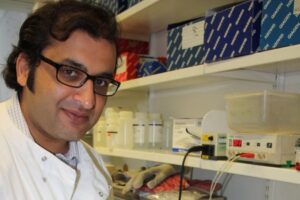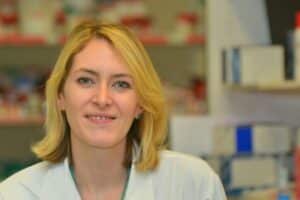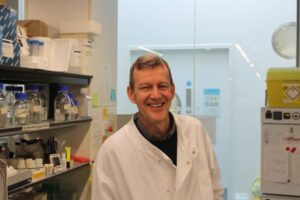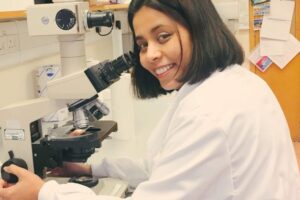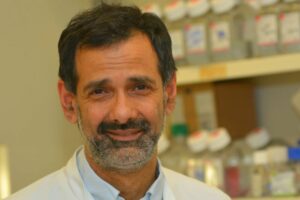Research
Researching potential new treatments for childhood leukaemia
There is a desperate need for novel, targeted, effective and less toxic treatments.
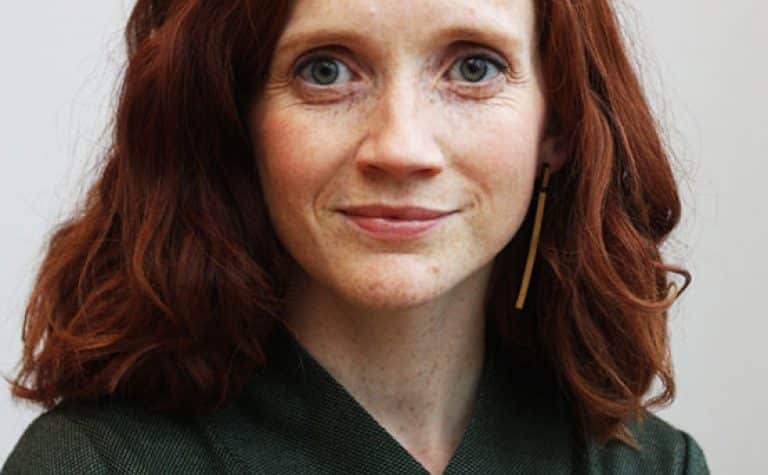
Project Details
- Targeting c-MYB in acute leukaemia through drug repositioning
- Lead Researcher
- Dr Katherine Clesham
- Research Centre
- UCL Institute of Child Health
- City & Institution Postcode
- London, WC1N 1EH
- Start Date
- 1 March 2017
- Project Duration
- 36 months
- Grant Amount
- £250,000
Advances in modern intensive chemotherapy have revolutionised childhood leukaemia treatment. Unfortunately, patients who have relapsed disease have a poor response to chemotherapy and in the UK leukaemia still accounts for 30% of cancer deaths in children (Data from Cancer Research UK). Those with ‘high risk’ disease are treated with more intensive chemotherapy and bone marrow transplants. This treatment is prolonged, intensive and causes short and long term side effects.
Dr Clesham aims to exploit the anti-leukaemic actions of existing medications to kill leukaemia cells. Specifically, they will target the cellular pathways hijacked by cancer genes. Her team have identified common drugs that have exciting potential for use in the clinic and they aim to evaluate their anti-leukaemia activity in pre-clinical experiments. Their goal is to take these drugs into early phase clinical trials.
Thank you
This research project on leukaemia has been successfully completed. Your donations allow us to fund ground-breaking research that can improve treatments given to children with cancer. Thank you. Your help allows us to continue to find ways to drive up the chances of survival for children with cancer and reduce the toxic side effects that can affect the rest of their lives.
Overview
Research by Dr Williams and others have identified a specific transcription factor as a central player in acute leukaemia. It is required for leukaemia development and maintenance, and although it is also needed for normal blood cell development, low expression levels can be tolerated. This suggests that we may be able to target this transcription factor, without adversely affecting normal blood cells. Dr Clesham’s host laboratory developed experimental leukaemia models to identify clinically-relevant drugs which are able to target this transcription factor. Utilising the unanticipated anti-leukaemic actions of existing medications can have significant tangible benefits over novel drug development: it is less risky, quicker to get the therapy to clinical study and significantly cheaper. These benefits could then be translated into clinical care for children and young adults with acute leukaemia. During the course of the project Dr Clesham will test a large range of leukaemia cells and samples with the candidate drugs. This will allow her to accurately to quantify their effects. This will be complemented by studying the effect of reduced transcription factor expression on the ‘self-renewal capability’ of leukaemia and their subsequent viability. This will allow the team to determine how much of the drug activity is due to inhibition of the specific transcription factor and how likely this is to be effective at eliminating leukaemia cells. The range of leukaemia samples to study at Great Ormond Street Institute of Child Health represent many of the most aggressive and difficult-to-treat leukaemia subtypes and will help guide the team to which patients may benefit most. Another important aspect of this project is to investigate how the drugs inhibit the specific transcription factor. Initial work has shown that there is increased transcription factor breakdown within the cell. Understanding the mechanism and the ‘downstream’ effects will provide further insight into understanding the role of this transcription factor in acute leukaemia. Studying the mechanisms behind drug activity may reveal other ways in which to treat acute leukaemia. Dr Clesham will undertake this research project under the supervision of Dr Owen Williams and Dr Jasper de Boer. Their groups have an outstanding record in childhood leukaemia research. Most recently their work has developed models to investigate leukaemia progression and identifying drug repositioning targets and therapies. This work has reached the pre-clinical validation stage with a view to translational implementation in the near-future.
Potential impact
The potential benefits for children with cancer are the development of new, less toxic therapies that will be effective at treating those children suffering from leukaemias that are difficult to treat with existing chemotherapy. An added benefit resulting from this work will be an increased understanding of biological processes that control cancer gene activity and that can be used by the team to interfere with how the cancer genes hijack normal blood cell development. This may also lead to novel treatments for acute leukaemia.
About the Research Team
Dr Katherine Clesham is a senior haematology registrar and a clinical research associate in Dr Owen Williams’ group at ICH with invaluable experience of understanding molecular modelling of leukaemia. To carry out the current project, Dr Clesham has been awarded a Children with Cancer UK Clinical PhD Studentship. Dr Williams will be supervising the project, which will also benefit significantly from ongoing collaborations with:
- Dr Jasper de Boer, from the Cancer Section, UCL, a close collaborator on several drug repositioning projects;
- Dr Philip Ancliff and Dr Sujith Samarasinghe, senior GOSH Haematology consultants who will ensure continuing access to paediatric leukaemia samples and provide insight into the clinical potential of this work;
- Prof Marry M. van den Heuvel-Eibrink and Prof C. Michel Zwaan, Erasmus MC – Sophia Children’s Hospital, Rotterdam, existing collaborators who have provided paediatric AML samples and cell lines, and;
- collaborations with Dr Olaf Heidenreich, Northern Institute for Cancer Research, Newcastle University and Dr Dominique Bonnet, The Francis Crick Institute.
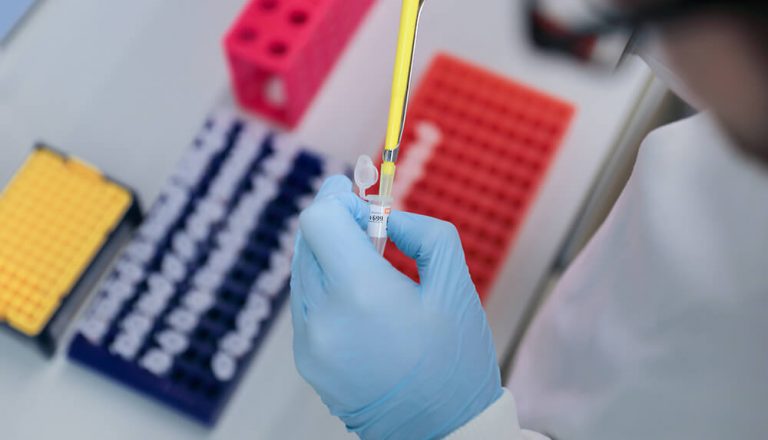
Other stories
We have lots of information to help you learn more about childhood cancer. From specific cancer types, to treatments and causes.

